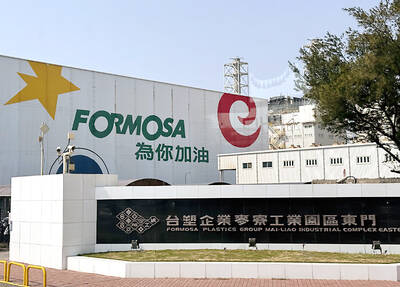Ta Chong Bank (大眾銀行) yesterday launched Money Plus, a new credit card catering to average spenders, who will be rewarded with up to a 4 percent cash rebate for every NT$1,000 purchase overseas.
The bank’s new credit card allows cardholders to keep the odd amount, capped at NT$10, of every purchase worth at least NT$888 made via the Money Plus card, while rewarding another equivalent cash rebate in the balance.
If the purchase is made overseas, the total cash rebate will be doubled. For example, if a cardholder pays for a purchase of NT$888, he immediately receives an NT$8 cash rebate in his balance, while the bank will deposit another NT$8 in his account, which translates into a total cash rebate of 1.8 percent, or 3.6 percent if the purchase is made overseas.
The initial cash rebate is capped at NT$10 for every purchase of NT$1,000, which translates into a total cash rebate of 2 percent for every purchase worth NT$1,000 made locally, or a 4 percent rebate for each purchase made overseas.
The cash rebate for purchases worth NT$1,001, however, will be NT$1, even though the amount is larger.
In the local credit-card market, cardholders usually have to spend more than NT$20,000 to be rewarded a 2 percent cash rebate.
But the Kaohsiung-based bank’s new card may discourage big spenders, who will not receive cash rebates in proportion to the amount of money they spend.
Smart yet small spenders, on the other hand, will earn back every commission the bank makes from the credit card, which usually generates a 1.5 percent commission fee.
Desmond Tan (陳義中), general manager of the bank’s card department, yesterday said the bank was ready to make no profit from the new card because a 2 percent rebate for an NT$1,000 purchase was the biggest cash rebate in the market for the smallest amount of spending.
But the preferential card will benefit the bank in boosting its market share by leveraging its targeted customer base, he said, adding that he believed the number of potential cardholders could reach 500,000.

EXTRATERRITORIAL REACH: China extended its legal jurisdiction to ban some dual-use goods of Chinese origin from being sold to the US, even by third countries Beijing has set out to extend its domestic laws across international borders with a ban on selling some goods to the US that applies to companies both inside and outside China. The new export control rules are China’s first attempt to replicate the extraterritorial reach of US and European sanctions by covering Chinese products or goods with Chinese parts in them. In an announcement this week, China declared it is banning the sale of dual-use items to the US military and also the export to the US of materials such as gallium and germanium. Companies and people overseas would be subject to

Taiwan Semiconductor Manufacturing Co (TSMC, 台積電) founder Morris Chang (張忠謀) yesterday said that Intel Corp would find itself in the same predicament as it did four years ago if its board does not come up with a core business strategy. Chang made the remarks in response to reporters’ questions about the ailing US chipmaker, once an archrival of TSMC, during a news conference in Taipei for the launch of the second volume of his autobiography. Intel unexpectedly announced the immediate retirement of former chief executive officer Pat Gelsinger last week, ending his nearly four-year tenure and ending his attempts to revive the

WORLD DOMINATION: TSMC’s lead over second-placed Samsung has grown as the latter faces increased Chinese competition and the end of clients’ product life cycles Taiwan Semiconductor Manufacturing Co (TSMC, 台積電) retained the No. 1 title in the global pure-play wafer foundry business in the third quarter of this year, seeing its market share growing to 64.9 percent to leave South Korea’s Samsung Electronics Co, the No. 2 supplier, further behind, Taipei-based TrendForce Corp (集邦科技) said in a report. TSMC posted US$23.53 billion in sales in the July-September period, up 13.0 percent from a quarter earlier, which boosted its market share to 64.9 percent, up from 62.3 percent in the second quarter, the report issued on Monday last week showed. TSMC benefited from the debut of flagship

TENSE TIMES: Formosa Plastics sees uncertainty surrounding the incoming Trump administration in the US, geopolitical tensions and China’s faltering economy Formosa Plastics Group (台塑集團), Taiwan’s largest industrial conglomerate, yesterday posted overall revenue of NT$118.61 billion (US$3.66 billion) for last month, marking a 7.2 percent rise from October, but a 2.5 percent fall from one year earlier. The group has mixed views about its business outlook for the current quarter and beyond, as uncertainty builds over the US power transition and geopolitical tensions. Formosa Plastics Corp (台灣塑膠), a vertically integrated supplier of plastic resins and petrochemicals, reported a monthly uptick of 15.3 percent in its revenue to NT$18.15 billion, as Typhoon Kong-rey postponed partial shipments slated for October and last month, it said. The